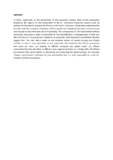Please use this identifier to cite or link to this item:
https://cris.library.msu.ac.zw//handle/11408/1060Full metadata record
| DC Field | Value | Language |
|---|---|---|
| dc.contributor.author | Rwafa, Urther | - |
| dc.date.accessioned | 2016-04-26T14:11:18Z | - |
| dc.date.available | 2016-04-26T14:11:18Z | - |
| dc.date.issued | 2013 | - |
| dc.identifier.isbn | 9780979085888 | - |
| dc.identifier.uri | http://hdl.handle.net/11408/1060 | - |
| dc.description | http://muse.jhu.edu/book/26629 | en_US |
| dc.description.abstract | In Africa, approaches to the appreciation of the ecosystem abound. Most of the approaches emphasize the urgency for the conservation of the en- vironment. Numerous reasons could be adduced for the need to preserve the African environment. In the past, scholarships emphasized the fact that with the coming of colonialism, African people were displaced from their ancestral lands and trapped in areas that were not self-sustaining. The consequences of this displacement without permanent movement is what is responsible for the desertification or disappearance of what was left in the form of “sacred groves” needed to be preserved. Celia Nyamweru and Michael Sheridan suggest that “this relic theory based on the outdated notions of tropical ecology and African societies as static is now superseded by new approaches that emphasize that African ecosystems and social sys- tems are dynamic at different temporal and spatial scales” (1). African conservationists have described, in different ways, negative dynamics oc- curring within the African environment that call for efforts at intervening and conserving the natural ecology. For example, “tropical deforestation” (Sheridan 9), and uncontrolled fires are held responsible for much de- struction of African ecosystems. | en_US |
| dc.language.iso | en | en_US |
| dc.publisher | African Heritage Press | en_US |
| dc.subject | Eco-Critical Literature | en_US |
| dc.subject | African literature -- History and criticism. | en_US |
| dc.subject | Environmental literature -- History and criticism. | en_US |
| dc.title | Destabilizing the images of the African forest as a conceptual space for renegotiating African identities during the Zimbabwe armed liberation struggle in the film flame (1996) | en_US |
| dc.type | Book | en_US |
| item.fulltext | With Fulltext | - |
| item.cerifentitytype | Publications | - |
| item.grantfulltext | open | - |
| item.openairecristype | http://purl.org/coar/resource_type/c_18cf | - |
| item.openairetype | Book | - |
| item.languageiso639-1 | en | - |
| Appears in Collections: | Book Chapters | |
Files in This Item:
| File | Description | Size | Format | |
|---|---|---|---|---|
| ABSTRACT Destabilising.pdf | 287.7 kB | Adobe PDF |  View/Open |
Page view(s)
74
checked on Nov 29, 2024
Download(s)
12
checked on Nov 29, 2024
Google ScholarTM
Check
Altmetric
Items in MSUIR are protected by copyright, with all rights reserved, unless otherwise indicated.



